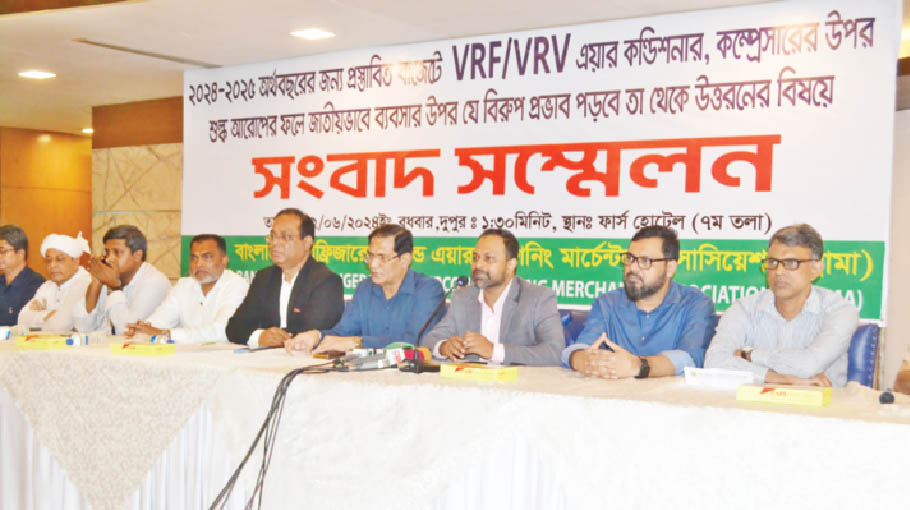BRAMA calls for review of import duties on ACs, compressors

The Bangladesh Refrigeration & Air Conditioning Merchants Association (BRAMA) Wednesday has urged the government to reconsider the decision to impose higher duties on the import of Variable Refrigerant Flow (VRF) and Variable Refrigerant Volume (VRV) air conditioning systems and compressors. They argue that the increased duties will negatively impact businesses and consumers, reduce government revenue, and lead to higher electricity consumption.
During a press conference held at a city hotel, BRAMA called for the retention of the previous Harmonised System (HS) Code 8415.10.10 for the sector.
The association highlighted that the government's proposed budget for the financial year 2024-25 includes a substantial increase in import duties on central air conditioning systems (VRF/VRV), raising the rate from 11 percent to 60 percent under the new HS Code 8415.10.20.
BRAMA President Mohammad Asaduzzaman, who presented the keynote address, emphasised that VRF/VRV systems represent the most advanced, energy-efficient, space-saving, and environmentally friendly refrigeration technology available both in Bangladesh and globally.
These systems have been imported for many years to serve various public and private sector needs. The association noted that the previous fiscal year's import duty was 11 percent, and the proposed budget would increase this rate to approximately 60 percent, a 49-percentage-point hike.
They warned that such a significant increase in tariffs would severely affect business operations, leading to potential revenue losses for the government.
Asaduzzaman pointed out that the central air conditioning systems, typically 2,10,000 BTU (17.5 tonnes) per unit, are widely used in residential buildings, hospitals, commercial buildings, and government projects across Bangladesh.
These units are designed for ease of use, space efficiency, and energy conservation due to their inverter technology.
In contrast, the newly proposed 3,10,000 BTU (25.5 tonnes) units are larger, consume more power, and are not suitable for the same applications.
The association expressed concerns that customers would be reluctant to purchase these larger units, leading to reduced demand, financial losses for traders, and decreased government revenue.
Asaduzzaman also highlighted that approximately 100,000 people are directly involved in the sector, which has an annual turnover of Tk 20 billion, with 200 companies engaged in imports.
He stressed the need to maintain the previous HS Code to support the sector's continued growth and sustainability.
Vice president Akram Hossain Boby, BRAMA directors Omar Sharif, Abu Sayed, Md Abul Hossain, advisor MA Sayed Babul and members Ali Rayhan and Biswanath Saha also spoke at the press conference, among others.
The association concluded with an urgent appeal to the government to reconsider the proposed tariff changes, emphasising the potential adverse impacts on the industry and the broader economy.




